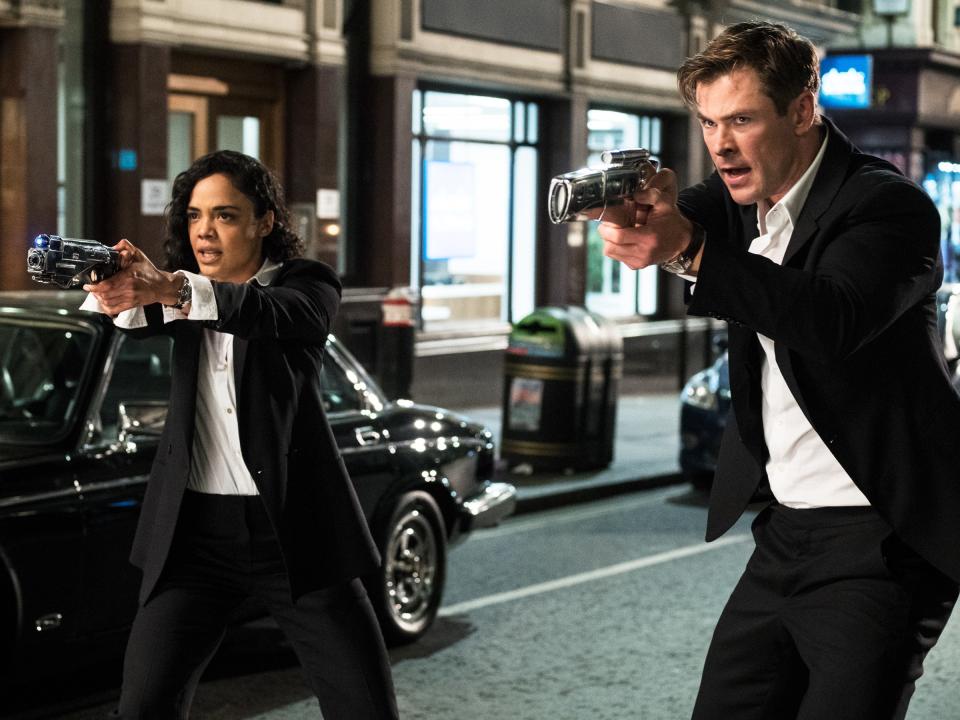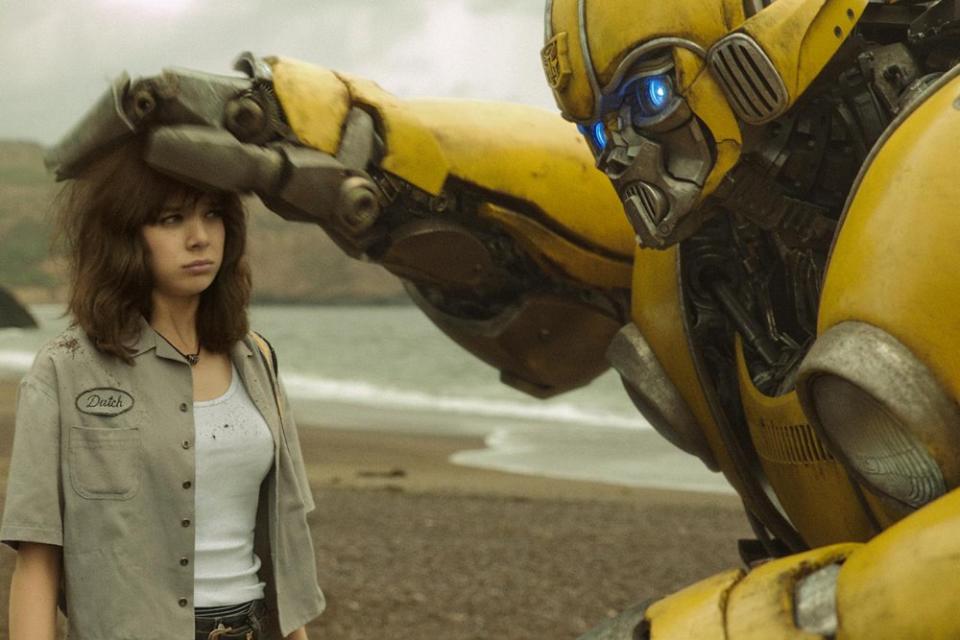There's a pattern of faux feminism in blockbusters and it needs to stop

Over the last few years, Hollywood has finally caught up to the fact that half the population are women. It’s taken decades of being sidelined in favour of male-led stories for female characters to really start taking centre stage, in action films (Captain Marvel, Wonder Woman), comedies (Booksmart, The Favourite), horrors (A Quiet Place, Hereditary), dramas (Can You Ever Forgive Me?, Roma) and other genres, and the stats have really supported this move.
Just last week, a new study found that young women are going to the cinema more than men while other research has shown that the top-grossing movies, from 2014 to 2017, with female leads outperformed those with male leads.
Feminism sells, hooray! We knew it!
Now studios are wising up to this fact. However, in recent weeks we’ve seen a pattern emerge in big-budget movies that see them pandering to women by shoehorning in an insincere display of feminism.
Read more: Men In Black: International slated as ‘tiresome’
Take X-Men: Dark Phoenix for example, which has a scene involving Jennifer Lawrence’s Mystique and James McAvoy’s Professor X arguing about the team’s increased number of risky missions to save humans to improve his political clout and popularity. After making her pretty reasonable point, she suddenly switches gear to make a dig about the name of their squad.
“By the way, the women are always saving the men around here,” she says. “You might want to think about changing the name to X-Women.” Next thing we know she’s been killed, or “fridged” as it’s called, in order to spur three male characters into action.
Then there’s Men in Black: International which has two similar moments. Tessa Thompson’s Agent M asks Emma Thompson’s Agent O why the secret organisation is still called “Men in Black.”
“I know!,” O exclaims. “I’ve asked the question… attachment issues!”
Read more: Rudd says fans need to campaign for Ant-Man 3
Later in the movie, and as seen in the trailer, Chris Hemsworth’s Agent H says, “We’re the Men in Black… the Men and Women in Black,” a line that drops like a lead balloon when you consider how many more men in black actually appear in the movie, have more screen time and altogether have bigger roles in the overarching narrative than, you know, women in black.

And who can forget when the superheroines of the MCU lined-up in that climactic battle scene in Avengers: Endgame? Though it's proven to be a source of inspiration for very young female viewers, we’ll give them that, to more discerning viewers it has served as an all-the-more condescending reminder that the franchise has spent the last decade putting its male heroes on a pedestal.
It’s really no wonder that the self-awareness of these moments have caused eyes to roll. You can just picture the male writers, who penned the scripts in all these cases, patting themselves on the back for thinking they’ve come up with truly feminist moments when in reality they only prove how little they understand of the concept or what women want.
Women don’t need to be reminded that these franchises, and movies in general, have historically championed male characters at the expense of female. We know, we’ve known for decades. What we want to see is the evening out of the playing field to allow for women to play as many leading roles as men in a way that makes sense to the character and story.
Captain Marvel, for example, has an abundance of feminist moments and dialogue that at first can be seen as overly trying to serve a feminist fist-pump. But actually, Carol Danvers has spent her whole life overcoming misogyny and sexism to prove she is just as capable as any man, in fields that have traditionally been overrun by men, so it makes sense that she’s confronted with these issues throughout the movie.
That’s one of the reasons female audience members have connected to her because they can also relate to the feeling of being overlooked, being asked to prove themselves at work because of their gender or even being asked to smile by a random man.
Read more: The female-fronted superhero movies coming soon
That’s why those moments feel like a more organic show of feminism, as do the scenes in Wonder Woman where Diana, who has never questioned her self-worth, strength or intelligence at home on Themyscira, expects to be listened to in a room full of men and treated with as much respect on the battlefield.
The feminism is woven into these scripts, written or co-written by women, in a way that makes sense for these characters rather than trying to correct misogynist missteps in their respective franchises. Other blockbusters have done this in an even more subtle way by just making their lead female and not looking at them through an objectifying male gaze.

The new Star Wars movies and the Transformers prequel Bumblebee do exactly that through Rey and Charlie, and even the latest Disney animations have moved on from the “Princess searching for love” trope by having the likes of Moana and Elsa searching for purpose instead.
They also prove that you don’t have to be a woman to write female characters in a nuanced and empowering way as male screenwriters like J.J. Abrams (Star Wars), and Jared Bush (Moana) can pen scripts that offer solid female narratives too.
Read more: Brie Larson ‘grateful’ for Captain Marvel success
History, however, has proven that male writers are also the worst culprits for delivering one-dimensional women and cringe-worthy feminist dialogue and the latest X-Men, Men In Black and Avengers movies are examples of this problem.
So if studios are really sincere about correcting the gender-balance of movies, and the film industry too, then its time they got more women writers like Jennifer Lee (Frozen) and Christine Hodson (Bumblebee) to pen its movies.
That way, we might be able to nip this faux feminism trend in the bud sooner rather than later.
Men In Black: International is cinemas from Thursday 13 June

 Yahoo Movies
Yahoo Movies 
